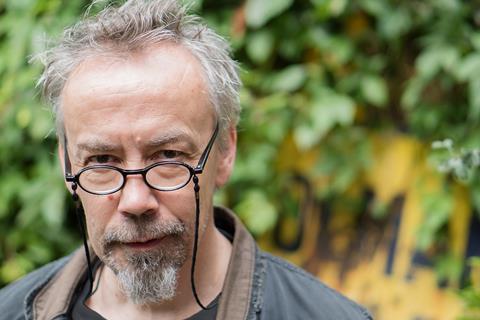The Russian invasion is demonstrating the fierce loyalty of Ukrainians to their home environment, says David Rudlin. We must hope that these beautiful places can be rebuilt again soon

Two weeks ago Ivan Fyodorov, the mayor of the southern Ukranian town of Melitopol, was kidnapped by the Russian military. The following day hundreds of the town’s people came out onto the streets, despite the heavy presence of Russian troops, to protest and demand his return.
The 33-year-old mayor is an ethnic Russian, but had called the Russian presence in his city an “occupation”. For this he was branded a traitor and charged with terrorism by the invaders. Loyalty to his city and his country was far stronger than ethnicity.
I have a long list of things that I want to write about at some point in this column, but this month they all seem trivial compared with what is happening in Ukraine. The sight of cities in ruins, civilian populations fleeing and civic institutions turned into volunteer defence forces is heart rending.
The Academy of Urbanism has spent many years visiting cities all over Europe as part of our awards scheme. We have never been to Ukraine, although we had been planning to visit more eastern European cities pre-lockdown. We have however visited many places that look very like the towns and cities that are being destroyed before our eyes in Ukraine and we have met many mayors like Ivan Fyodorov, who fortunately was released in a prisoner swap after a week in captivity.
I realise that it is wrong to calibrate our grief and outrage based on how much the people affected look like us. I was badly affected by the destruction of Aleppo but that tragedy played out over such a long time the scenes of devastation almost became normalised.
Distant wars are no less important, but ones affecting places and people that feel familiar really bring home to us the horror of war, particularly when it is played out in tree-lined streets, public squares and university campuses.
When the academy travels to European cities the shadow of war is never far below the surface in a way that is not so much the case in the UK. Our cities may have lived through the Blitz but war is not generally part of their identity except in places like Coventry.
By contrast my wife’s grandparents in the southern French city of Perigueux retained vivid memories of occupation and the Vichy regime. The pockmarks of shrapnel can still be seen in the walls of cities across Europe as a reminder of past horrors.
The place that the academy has visited with the most recent experience of war was Ljubljana. The 10-day war of Slovenian independence in 1991 was within the memory of many of the people we met, although because the war was won and Ljblijana was largely spared, it was a source of pride rather than trauma.
The destruction of a city as an act of war is about far more than damage to property and essential services… cities are a manifestation of the collective spirit of the people
Our most uncomfortable experience was being presented with aerial views of the beautiful German city of Freiburg with every building except the cathedral destroyed by British bombers.
The destruction of a city as an act of war is about far more than damage to property and essential services. As we are seeing in Ukraine, cities are a manifestation of the collective spirit of the people. People interviewed on TV say that they cannot bring themselves to leave; it is their city, a place of friends and family, personal history and identity, and they will fight to defend it.
In the UK we are no less attached to our towns and cities but what we don’t have is local autonomy and the importance this grants to mayors in leading their people and bringing about change. We are experimenting with the idea of mayors but without the devolved powers they will struggle to occupy the positions of leadership, respect and power that they do in continental Europe.
We have commented many times how important this is in peacetime and we are seeing now that the same is true in war as a Ukrainian volunteer army is holding the might of Russia at bay, for now at least.
The immediate priority is to stop the destruction and to save the beautiful historic cities of Kyiv, Odessa, Lviv and all of the other places that have so far been spared. Not because they are beautiful or historic but because they represent the culture and identity of their people.
If there is a positive lesson from those shrapnel-pocked walls elsewhere in Europe, it is that cities do recover. Freiburg, unlike Coventry, has been built as an exact facsimile of the city that British bombers destroyed.
It is not the first time that Ukrainian cities have been destroyed. Let us hope that it is not long before those that have been targeted can be rebuilt again – as free cities in a free country.
Postscript
David Rudlin is principal and a director of URBED (Urbanism Environment and Design), chair of the Academy of Urbanism and an honorary professor at Manchester University
















1 Readers' comment